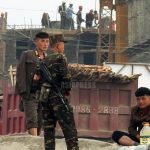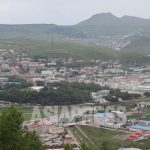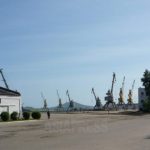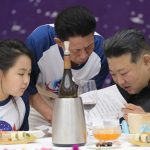◆ Trading companies give up on trade, compete with citizens running private restaurants
According to the reporting partner, most of the trading companies that exported to China are now, instead, operating restaurants and shops. To raise capital, they have partnered with emerging wealthy elites, known as ‘donju’.
This development came as quite a shock to local residents who were running small, private restaurants outside markets or out of their homes. Threatened with charges of ‘anti-socialist’ behavior, they have been banned from operating their private businesses.
The market economy began to grow in North Korea when a large number of citizens, unwilling to continue working at state-run companies for little to no salary or rations, instead found ways to bribe their supervisors to excuse their absences, freeing them up to pursue private business. One typical private market activity is selling food, with vendors selling homemade bread and rice cakes on the street or, instead, turning their homes into restaurants to cook for paying customers.
In North Korea, individual economic activity is strictly controlled and is technically illegal. Despite this, private restaurants have gained significant popularity, with some even taking orders for delivery by phone.
Struggling to make any revenue due to sanctions, North Korean trading companies have now turned to the restaurant business. Their aim- to get their hands on the cash in domestic circulation in order to meet their quotas.
Private restaurant owners, however, are strong competitors. Though, the government, since last year, has been cracking down nationwide, constantly shutting down and limiting the size of private restaurants. This leaves ordinary people, facing a crisis, as they try to make a living in a country that is pitted against them.
"The authorities are not allowing the people to eat,” the reporting partner says, sparking strong opposition.
- Pressure Point: China Stifles Smuggling as North Korean Exports Tumble
- <Inside N. Korea> A Building Burden: Rising Discontent as Regime Extorts Resources from Residents to Support Tourist Site
- <Inside N. Korea> “People are starving”: South to Send Support...But Will Food Reach Those Most in Need?
- <Inside N. Korea> Utterly Powerless: Residents Unhappy Living “Primitive Lives”, Receiving No Electricity for Last 6 Months
- <Inside N. Korea> Hopelessly High: Regime Combats Rising Drug Abuse as Citizens Seek Escape From Reality
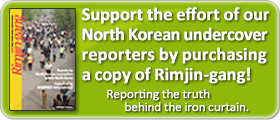 Editor’s notes on North Korean reporters
Editor’s notes on North Korean reporters
ALL REPORTS >>>
ARCHIVE(pdf) >>
DPRK MAP >>
